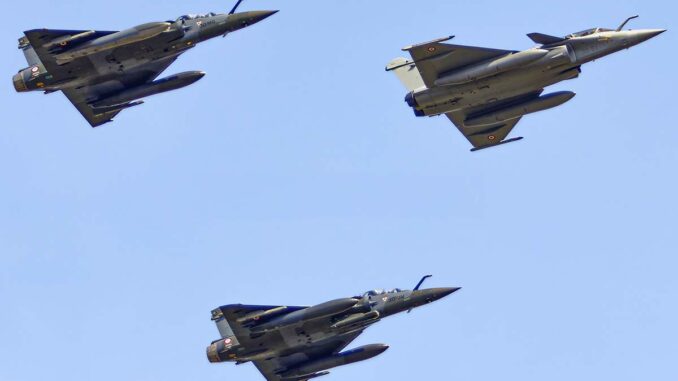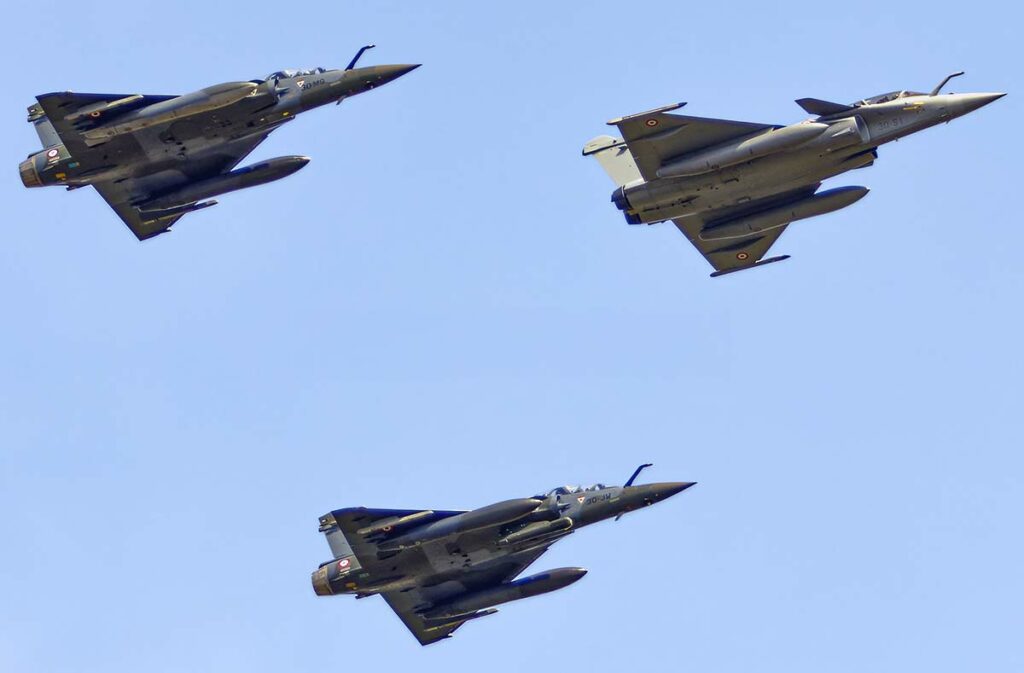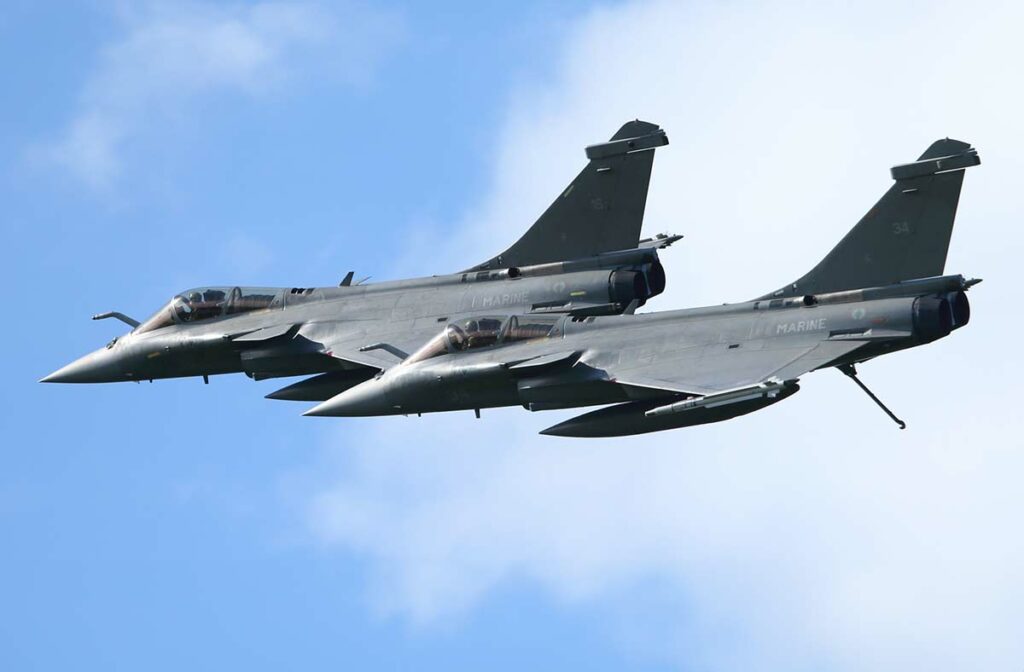
France has budgeted 11.7 billion euros for the development and modernization of the Dassault Rafale fighter program up to 2026, with plans for extensions beyond this date. This funding is designed to maintain French aeronautical excellence until the Future Combat Air System (FCAS) becomes operational, scheduled between 2040 and 2045.

Investment context
A substantial financial commitment
The French government has earmarked a significant budget of 6.41 billion euros between 2023 and 2026 for the Rafale program, with an additional investment of 5.36 billion euros envisaged after 2026. This reflects the strategic importance France attaches to the modernization and development of its air capabilities.
Detailed budget breakdown
The Defense Budget Bill for 2024 indicates specific expenditure for the Rafale: €1.66 billion in 2023, €2.29 billion in 2024, €1.69 billion in 2025, and €764.8 million in 2026. This demonstrates rigorous planning and a long-term vision for the program.
Modernizing and improving the Rafale
Rafale F4 standard
Between 2024 and 2026, a total of €1.38 billion will be spent on upgrading the Rafale to the F4 standard. This upgrade includes improved weapons capabilities, sensors and cyber resilience, as well as the integration of the Thales Scorpion head-up targeting system and the 1,000 kg AASM precision-guided bomb.
Delays and future plans
Qualification of the F4.2 standard has been postponed to 2025, while that of the F4.1 has been announced for March 2023. In addition, the F5 standard, requiring a budget of 211.9 million euros, is focusing on risk reduction studies and work on the Thales RBE2 XG radar. The F5 upgrade aims to maintain a high level of air combat competence and integrate a higher level of connectivity, while awaiting the New Generation Weapon System as part of the FCAS.
Development of unmanned systems
Preparation of an unmanned combat air vehicle (UCAV)
Additional funding of 128.09 million euros is allocated to the preparation of a UCAV to support the Rafale F5. This underlines the importance attached to drone technologies in future defense strategy.
The Neuron program
Launched in 2003, the Neuron program, led by Dassault Aviation in collaboration with several European partners, marks a significant milestone in the development of French autonomous airborne capabilities.
Rafales acquisition and delivery
Orders and deliveries in progress
France plans to order 42 Rafales by the end of 2023, with negotiations underway for this fifth tranche. Deliveries, initially scheduled to start in 2029, could begin as early as 2027.
Fleet objectives
In accordance with the French Military Planning Law, France aims to have 178 Rafales (137 for the Air Force and 41 for the Navy) by 2030, and 225 by 2035. This demonstrates the long-term commitment to the Rafale as a pillar of the French aeronautical force.
Implications and outlook
Strengthening defense capabilities
The massive investment in the Rafale strengthens France’s defense capabilities, ensuring a robust and modern military air presence.
Impact on the aeronautics industry
This financing boosts the French aeronautics industry, supporting innovation, research and development in a key sector of the national economy.
Strategic positioning
With these developments, France is firmly positioning itself as a key player in the field of air defense, while preparing the transition to the FCAS.

The substantial budget allocated by France to the Rafale program reflects an ambitious defense strategy and a determination to maintain air supremacy in an era of rapid military modernization. This investment is crucial not only for national security, but also for maintaining a competitive aeronautics industry. By paving the way for the FCAS and developing cutting-edge technologies such as the Neuron, France is securing a leading role in future international air defense dynamics.
War Wings Daily is an independant magazine.